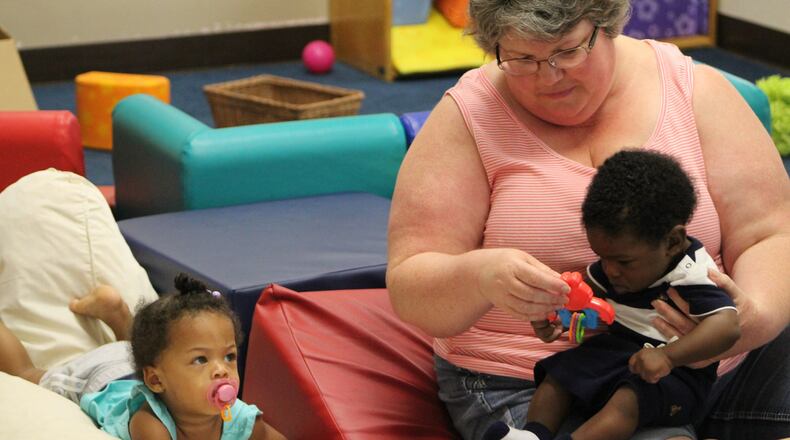Mike DeWine, Republican: Raise the eligibility limit for subsidized childcare from 130 percent of the federal poverty level to 150 percent. Ensure early childhood education centers are high quality. Increase home visits for at-risk, first-time mothers. Name a director of Children’s Initiatives to coordinate children’s programs statewide.
Constance Gadell-Newton, Green Party: Increase funding for preschool activities. Ensuring an environment where the state’s youngest children aren’t exposed to toxins such as lead, and make sure kids have access to nutrition.
Travis Irvine, Libertarian: Cut spending to inefficient areas of the state’s education system and invest what we can afford into these programs in the districts that need them.
***
Both Democrat Rich Cordray and Mike DeWine have called for increasing access to high-quality early childhood education if elected governor.
Each candidate proposes increasing the eligibility threshold for state subsidized child care from 130 percent of the federal poverty level ($2,720 a month for a family of four) to 150 percent ($3,138 per month for a family of four).
RELATED: Where Ohio governor candidates agree, differ on education
DeWine’s campaign estimates that change alone will add 20,000 children to the program.
In Montgomery County, the new threshold could make about 2,400 more children five and under eligible for the program. About 1,000 of those would likely participate, according to an analysis by University of Dayton researcher Richard Stock.
The Ohio Department of Job and Family Services couldn’t provide an estimate of what the eligibility changes would cost the subsidized child care program, which is funded through a combination of state and local money.
RELATED: Preschool Promise cites success, ‘much more work still to do’
Corday and DeWine also agree on having the state pay for visitation programs for new mothers and on creating a state office to focus on children’s care.
“I think it’s really promising and encouraging that both of these candidates are making a commitment to kids’ health and education issues,” said Robyn Lightcap, executive director of Learn to Earn Dayton. “I think it’s a really important step in the right direction.”
About the Author

